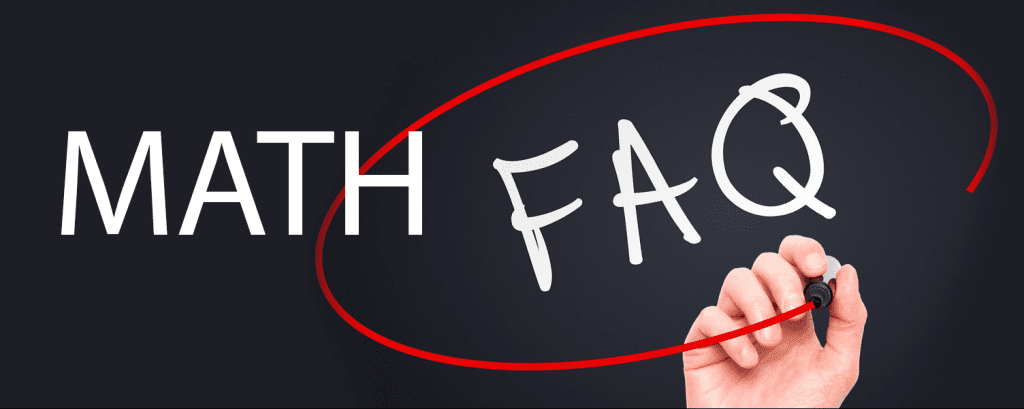What Does “q” Stand for in Math?
In mathematics, “q” typically represents the quotient in division or a variable. It can also be used in other contexts such as in geometry, where “q” may denote a point or line.
What Does “Quotient” Mean in Math?
The quotient is the result obtained when one number is divided by another. For example, in the division 10÷2, the quotient is 5.
What Does “r” Mean in Math?
In math, “r” often stands for the remainder in division. For example, if you divide 11 by 3, the quotient is 3, and the remainder (r) is 2. In geometry, “r” can also represent the radius of a circle.
What Does “R3” Mean in Math?
“R3” represents the three-dimensional Euclidean space. It refers to the set of all ordered triples of real numbers, which can be used to describe points in 3D space.
What Does “Range” Mean in Math?
The range in math refers to the set of all possible output values of a function. It’s the difference between the highest and lowest values in a data set.
What Does “Ratio” Mean in Math?
A ratio compares two numbers by division, showing how many times one value contains or is contained within the other. For example, a ratio of 3:2 indicates that for every 3 units of one thing, there are 2 units of another.
What Does “Real Numbers” Mean in Math?
Real numbers include all the numbers on the number line, including all the rational and irrational numbers. They exclude imaginary and complex numbers.
What Does “Reciprocal” Mean in Math?
A reciprocal of a number is the inverse of that number. For a number x, the reciprocal is x1. For example, the reciprocal of 5 is 51.
What Does “Reciprocal” Mean in Math Fractions?
For a fraction, the reciprocal is obtained by flipping the numerator and denominator. For instance, the reciprocal of 43 is 34.
What Does “Rectangular Prism” Mean in Math?
A rectangular prism is a 3D shape with six faces, all of which are rectangles. It has three dimensions: length, width, and height.
What Does “Relative” Mean in Math?
In math, relative refers to something that depends on a point of reference. For example, relative error measures how large an error is in relation to the correct value.
What Does “Sector” Mean in Math?
A sector in a circle is the area enclosed between two radii and the corresponding arc. It’s similar to a slice of pizza.
What Does “Similar” Mean in Math?
Two shapes are said to be similar if they have the same shape but not necessarily the same size. Their corresponding angles are equal, and their corresponding sides are proportional.
What Does “Simplify” Mean in Math?
To simplify in math means to reduce an expression or fraction to its simplest form. For example, simplifying the fraction 84 gives 21.
What Does “Solve” Mean in Math?
To solve a math problem means to find the value of the variable that satisfies the given equation. For example, solving x+5=9 gives x=4.
What Does “Substitution” Mean in Math?
In algebra, substitution is the process of replacing a variable with a given value or expression. For example, if x=3, you can substitute 3 for x in any expression involving x.
What Does “Successive” Mean in Math?
Successive refers to a sequence where each item follows the previous one. For example, in successive integers, each integer is one unit greater than the previous one, like 1, 2, 3, etc.
What Does “Supplementary Angles” Mean in Math?
Supplementary angles are two angles whose measures add up to 180 degrees. For example, angles of 110° and 70° are supplementary.
What Does “Term” Mean in Math?
A term in math refers to a single element in an expression. It can be a number, a variable, or a product of both. For example, in the expression 5x+3, both 5x and 3 are terms.
What Does “Terminating” Mean in Math?
A terminating decimal is a decimal number that has a finite number of digits after the decimal point. For example, 0.75 is a terminating decimal.
What Does “The” Stand for in Math?
In some contexts, the in math may refer to something definite, such as in “the solution” or “the result.”
What Does the Word “Increase” Mean in Math?
Increase in math refers to making a number larger. For example, if you increase 5 by 2, the result is 7.
What Does the Word “Volume” Mean in Math?
In mathematics, volume is the amount of space occupied by a 3D object. It is measured in cubic units, such as cubic centimeters (cm³).
What Does “Tilde” Mean in Math?
The tilde symbol (˜) can represent approximation or similarity in math. For example, \tilde is used to indicate that two shapes are similar.
What Does “Translation” Mean in Math?
A translation is a type of transformation that slides a shape from one position to another without rotating or changing its size.
What Do Two Straight Lines Mean in Math?
Two straight lines can represent parallel lines, perpendicular lines, or lines that intersect at a point.
What Does “Undefined” Mean in Math?
A value or expression is undefined when it has no meaning in the context of the problem. For example, division by zero is undefined.
What Does “Upside Down A” Mean in Math?
The upside-down A ( ∀ ) symbol means “for all” in math, often used in logic and set theory.
What Does “Value of Expression” Mean in Math?
The value of an expression refers to the result you get when you evaluate or simplify an expression. For example, the value of 2+3 is 5.
What Does “Vary” Mean in Math?
To vary in math means to change or alter. Variables in algebra “vary” because they represent numbers that can change in value.







